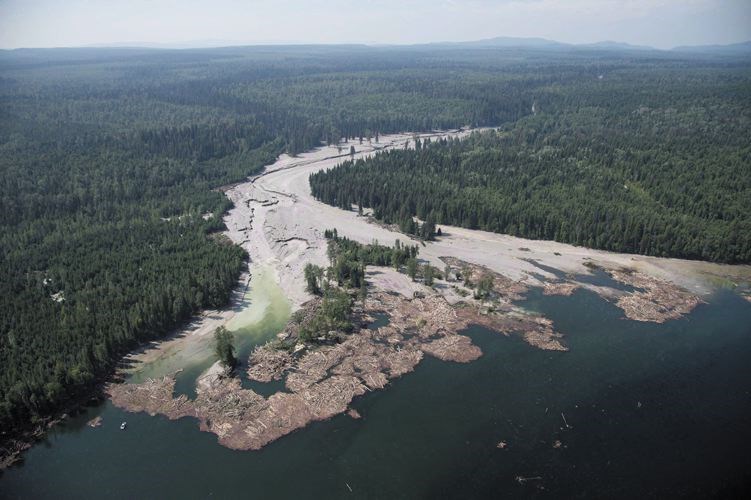The disclosure Wednesday that there will be no charges laid under B.C.'s environmental laws for Imperial Metals' Mount Polley tailings dam failure in 2014 has environmentalists questioning whether the province's laws are strong enough.
There remains the possibility of federal charges under the Fisheries Act, but the B.C. Conservation Officer Service has said a B.C.-federal investigation will not be complete by Friday - when the three-year time limit to lay charges under B.C.'s Environmental Management Act ends.
The B.C. conservation service-led investigation - involving a dedicated team of officers and several federal investigators - started almost immediately after the
Aug. 4, 2014 failure of the earth-and-rock dam at the gold-and-copper mine northeast of Williams Lake. That failure spilled millions of cubic metres of effluent and finely ground rock containing potentially toxic metals called tailings. The release scoured a nine-kilometre creek, home to trout and spawning coho salmon, and dumped tailings into Quesnel Lake, the migration route for more than one million sockeye salmon.
Andrew Gage, a lawyer with West Coast Environmental Law, said the fact there will be no charges laid under B.C. laws for one of Canada's largest mining spills is remarkable and highlights a general trend, he believes, of decreased successful convictions of environmental violations.
Gage pointed to data West Coast Environmental Law has put together showing that since 1990 there has been a significant decline in the number of convictions under the province's pollution statutes.
A Ministry of Environment online database lists 47 court convictions under the Environmental Management Act since 2006, only one involving a mining company, the coal giant Teck Resources.
Teck had convictions in 2013 and 2016, the latest resulting in $3.4 million in fines related to releases of water with elevated levels of metals and chemicals.
"I hope the new NDP government will ask tough questions," said Gage, of the failure of the B.C.-led investigation to reach a conclusion by the time limit.
Calvin Sandborn, legal director of the University of Victoria's Environmental Law Centre, said it is significant that one of the biggest global mining "disasters" has not resulted in charges in B.C.
He believes it underscores a benign neglect in regulation of mining, highlighted in a B.C. auditor general report last year that concluded compliance and enforcement in the mining sector are not adequate to protect the environment.
"Lack of enforcement, or lack of laws to enforce, shows the need for a royal commission of inquiry," said Sandborn, repeating a call made earlier for an inquiry into the regulation and oversight of mining in the province.
However, Robin Junger, a lawyer with McMillan LLP in Vancouver, said it is not uncommon for both provincial and federal agencies to investigate an incident and for one or the other not to lay charges. Generally - as he could not speak to the specifics of this case - there could also be reason for not pursuing charges including a defence of due diligence, said Junger, a former deputy minister of mines in B.C., as well as a former head of the province's Environmental Assessment Office.
Ugo Lapointe, program coordinator for Mining Watch Canada, said the lack of charges under B.C. laws says to him that the province's laws are weak.
"It needs to be fixed and fixed quickly," he said.
Lapointe said Mining Watch believes that B.C. laws were violated as a result of the dam failure, including potentially under the Environmental Management Act, Mining Act and Water Sustainability Act.
He said Mining Watch has its legal team examining if it's possible to lay private charges before the three-year time limit ends on Friday.



